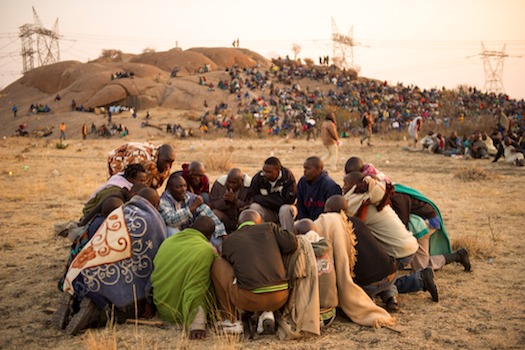- About
- Topics
- Picks
- Audio
- Story
- In-Depth
- Opinion
- News
- Donate
- Signup for our newsletterOur Editors' Best Picks.Send
Read, Debate: Engage.
| February 22, 2016 | |
|---|---|
| topic: | Economic Fairness |
| tags: | #devaluation, #RAND, #Yuan, #Zimbabwe |
| located: | Zimbabwe |
| by: | Rosemary Musvipwa |
This is the case with Zimbabweans who are feeling the pinch of the dismal fall of the South African Rand within the confines of their own country.
For the first time in 14 years the Rand broke the R13 to US$1 exchange rate. The Rand has been performing poorly against the United States Dollar for the past couple of months and is now trading for as much as R20 to US$1 in Zimbabwe.
“My husband works in Johannesburg as a security guard and the money he sends usually compliments the money I make as a hairdresser,” said Sharon Khabo.
“But now I have had to hunt for more clients to make sure that I pay our children’s fees from my own earnings. The R1500 he sent only gives me about US$75 which is far below the total of US$320 that I have to cover in tuition fees alone before factoring in our daily living costs” Khabo explained.
While the use of the Rand within the South African borders is still within the living standards of its citizens, the purchasing power for those who hold the Rand in their clutches in Zimbabwe is rather limited. One has to part with a whole lot of Rands in order to make transactions which are mainly priced in US dollars.
The devaluation of the Rand has had similar effects on urban and rural communities, with Bulawayo and its surrounding areas being the hardest hit. This is because it is nearer to South Africa than Harare, and has several more families there who depend on a relative that works in South Africa to send money back home.
Rejection
Lately, it has become unpopular to make any day to day transactions using the Rand. Some food outlets, retailers such as OK Zimbabwe and even street vendors have been refusing to accept Rands as legal tender for the trading of goods and services with potential customers. Apparently, it is difficult for the business entities to exchange Rands especially the coins at the end of the day when they are cashing in or when they are hoarding more merchandise.
In a surprising twist of events, there has been an increased inclination towards the once-ridiculed Zimbabwean bond coins which were introduced in December 2014 to ease the problem of a shortage of the Rand coins. However, the bond coins only circulate within the Zimbabwean borders as they are not tradeable outside the country.
“In the transport business we just end up having to accept the Rand but it’s really a case of making losses in the end. It is better for customers to pay their bus fare in bond coins or in US dollar notes, as it is easier for one to purchase fuel at a cheaper price in dollars than if you were to buy it using Rands since the rate is US$1 to R20 at most filling stations,” said Joseph Mutandwa, a private transport operator.
The Reserve Bank of Zimbabwe has been unable to fully rein in on the situation of the rejection of the Rand as it is a foreign currency and the Zimbabwe central bank governor, John Mangudya was quoted in The Herald saying: “What has been happening with the Rand coins is only natural because the value of the Rand has been falling, therefore businesses do not want to incur exchange rates losses. At the same time no one also wants to incur exchange rates losses so it’s no one’s fault really.”
The most recent fall of the rand has been attributed to the unexpected firing of the South African Finance Minister Nhlanhla Nene (which was eventually quickly rectified by the reappointment of Pravin Gordhan in an effort to steady the Rand’s fall). The fall has also been blamed on the devaluation of the Chinese Yuan, the Greek crisis, student protests in South Africa, and fears over US interest rates hikes.
The other side of the coin
For many of the migrant workers resident in South Africa the Christmas holiday period which they spent in Zimbabwe was bleak. There was a reduction in the usually flamboyant holiday lifestyle that is associated with the ‘iNjivas’ (the playful alias for the migrant workers). The usual bucketful of Rands that most of them had saved up for their annual festive home visits proved to be worth much less than they had budgeted for.
“My uncle and his wife usually spend a lot of money when they come home during the festive holidays but this time around we were all shocked that they were keeping a low profile and staying at their house for most of the time that they were here. On top of everything they went back to South Africa early after confessing that it was expensive for them to remain in Zimbabwe,” said Anesu Chipote.
In contrast, when one flips to the other side of the coin there are some Zimbabweans who are taking advantage of the fall of the Rand. Those that are crossing the border to do any kind of personal or business shopping are smiling all the way to the bank as they are able to get much more for the US dollars that they convert to Rands as they cross into South Africa.
By copying the embed code below, you agree to adhere to our republishing guidelines.
